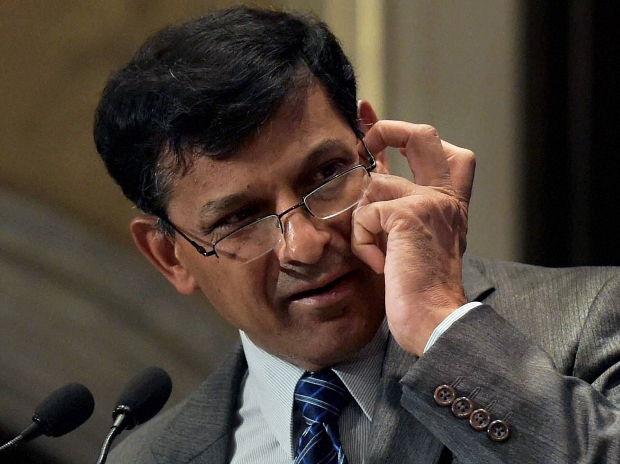Rajan 'reflects' and 'consults' with the govt to step down as RBI governor

Putting an end to all the speculation about his continuance in the central bank, Reserve Bank of India (RBI) governor Raghuram Rajan on Saturday said he won’t be seeking an extension of his term once it comes to an end on 4 September, 2016.
Instead, the hallowed economist who precisely predicted an impending global credit crisis back in 2005, said he would go back to his ultimate home in the “realm of ideas,” but will be available to serve his country when needed.
"I am an academic and I have always made it clear that my ultimate home is in the realm of ideas," Rajan wrote to the RBI staff on Saturday, in an unexpected communication. "The approaching end of my three year term, and of my leave at the University of Chicago, was therefore a good time to reflect on how much we had accomplished. .... While I was open to seeing these developments through, on due reflection, and after consultation with the government, I want to share with you that I will be returning to academia when my term as Governor ends on September 4, 2016. I will, of course, always be available to serve my country when needed."
In his mail to the RBI staff, Rajan, a straight talker, hinted that even as he was probably personally interested in continuing, he decided to step down after ‘consultation’ with the government.
“The approaching end of my three year term, and of my leave at the University of Chicago, was therefore a good time to reflect on how much we had accomplished,” Rajan said.
And his achievements are many, the most important being bringing stability to the domestic currency, and bringing more credibility to the central bank’s monetary policy, at a time when India was counted among one of the ‘Fragile Five’ nations.
Rajan took over as the 23rd governor of the central bank at a time when the country was facing a currency crisis of sorts with rupee falling sharply to record lows. On 28 August, 2013, the local currency fell to its record low of 68.87 a dollar. Rajan took charge of the bank and boldly proclaimed a number of measures, including stabilising the currency and fixing the bad assets problems of India’s public sector banks.
Steps taken by Rajan, including introducing a new deposit scheme for non-resident Indians in the form of FCNR (Foreign Currency Non Resident) bonds, stabilised the rupee and zoomed it back to a narrow band of Rs 60-62 a dollar. The rupee remained in the band for a good time and showed all signs of getting strengthened fast. But the central bank took advantage of the strength in rupee to accumulate dollars to shore up India’s falling forex reserves too.
At the end, rupee stabilised, depreciating only gradually to maintain export competitiveness, reserves reached record levels of $360 billion plus in three years, from about $270 billion at the start of September 2013, and India was firmly established as an ‘island of stability in turbulent seas.’
However, all these achivements were not enough to cut ice with some vehement critics of Rajan in the government, most vitriolic being Rajya Sabha MP Subramaniyan Swamy, who openly called for the governor to step down a number of occasions, including alleging that the FCNR (B) deposits worth $35 billion that was raised was a ‘ticking time bomb’.
Rajan, in his letter to staff, though said the central bank has prepared well for the redemptions and managed properly, the redemptions should “largely be a non-event.”
“Colleagues, we have worked with the government over the last three years to create a platform of macroeconomic and institutional stability. I am sure the work we have done will enable us to ride out imminent sources of market volatility like the threat of Brexit,” Rajan said in his letter, adding:
“We have made adequate preparations for the repayment of Foreign Currency Non-Resident (B) deposits and their outflow, managed properly, should largely be a non-event. Morale at the Bank is high because of your accomplishments.”
However, there were still unfinished agenda, as Rajan pointed out in his mail to staff.
While Inflation, below 6 per cent, is in the target zone, the monetary policy committee that would set the policy is yet to be formed. Moreover, the bank clean up initiated under the Asset Quality Review, having already brought more credibility to bank balance sheets, is still ongoing
International developments like Britain’s potential exit from euro zone and its resultant global economic volatility, also posed risks in the short-term.
“While I was open to seeing these developments through, on due reflection, and after consultation with the government, I want to share with you that I will be returning to academia when my term as Governor ends on September 4, 2016,” Rajan wrote in his mail.
“I am sure the reforms the government is undertaking, together with what will be done by you and other regulators, will build on this platform and reflect in greater job growth and prosperity for our people in the years to come. I am confident my successor will take us to new heights with your help. I will still be working with you for the next couple of months, but let me thank all of you in the RBI family in advance for your dedicated work and unflinching support. It has been a fantastic journey together!
With gratitude,” Signed off Rajan.
Courtesy: Business Standard




